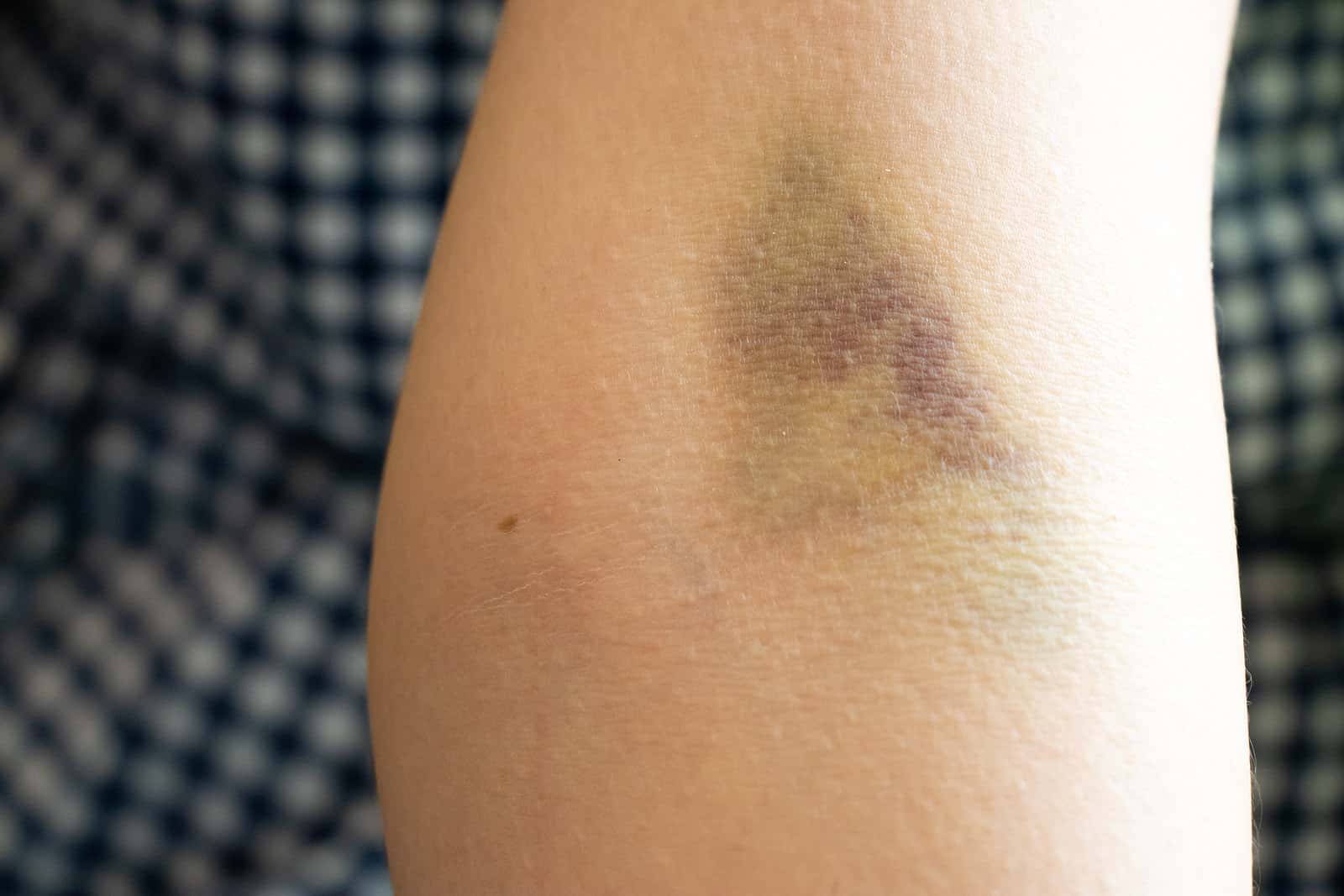
Many people take vitamins with the expectation that they will stay healthier if they get adequate levels of these antioxidant compounds. While doctors often recommend that women take multivitamin supplements during pregnancy, they may often suggest that other individuals don’t need them. Most studies don’t reveal serious side effects from vitamin supplements (Nutrition, April 2017). One reader wonders whether vitamin E pills could cause easy bruising.
Is There a Link Between Vitamin E and Easy Bruising?
Q. I have been taking vitamins, including vitamin E, for a couple of decades. I bruise very easily for no apparent reason. Sometimes a big bruise shows up on my fair skin and I can’t remember bumping anything. Could the vitamin E be causing the bruising?
A. Scientists discovered many years ago that alpha-tocopherol can keep blood platelets from sticking together (Blood, Jan. 1989). This is the primary form used in vitamin E supplements. This suggests that vitamin E could lead to easy bruising and possibly even bleeding. Clinical reports confirm bruising, bleeding, digestive distress, fatigue, weakness and rash from high doses (Indian Dermatology Online Journal, July-Aug. 2016).
You might want to try reducing your dose and see if that makes a difference. On the other hand, we could urge you to re-evaluate whether you need to continue with vitamin E. In summary, most studies do not show that such supplements prevent heart disease, cancer or cognitive decline.
Getting Vitamin E from Foods:
To get this vitamin from the diet, consider consuming sunflower seeds, almonds, hazelnuts or peanuts. Safflower oil, sunflower oil and especially wheat germ oil are rich in natural tocopherols. Many Americans don’t eat enough of these foods to get adequate vitamin E (Journal of Nutrition, April 2006). If you are interested in learning more about supplementation, including vitamin E, we recommend Fortify Your Life: Your Guide to Vitamins, Minerals, and More by Dr. Tieraona Low Dog. It addresses needs for vitamins and minerals, medications that deplete the body of specific nutrients, laboratory tests to assess nutritional status and the best forms of vitamin E. Your public library may have a copy. If you wish, though, you can find a paperback edition here.
Citations
- Biesalski HK & Tinz J, "Multivitamin/mineral supplements: Rationale and safety." Nutrition, April 2017. DOI: 10.1016/j.nut.2016.06.003
- Jandak J et al, "Alpha-tocopherol, an effective inhibitor of platelet adhesion." Blood, Jan. 1989.
- Keen MA & Hassan I, "Vitamin E in dermatology." Indian Dermatology Online Journal, July-Aug. 2016. doi: 10.4103/2229-5178.185494
- Gao X et al, "The maximal amount of dietary alpha-tocopherol intake in U.S. adults (NHANES 2001-2002)." Journal of Nutrition, April 2006. DOI: 10.1093/jn/136.4.1021

